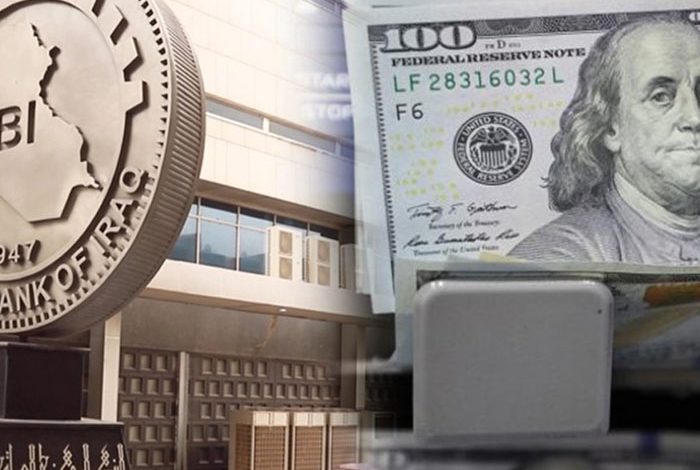American Sanctions on Iraqi Banks Bring the Dinar Crisis to the Forefront
The Parliamentary Finance Committee plans to summon the Central Bank Governor and the Finance Minister to discuss the reasons behind the lack of control over the parallel exchange rate of the dollar

The crisis of the rising exchange rate of the dollar in Iraq has resurfaced after the United States imposed sanctions on 14 banks suspected of being a source of hard currency flow to Iran.
Earlier, similar US restrictions on Iraqi banks caused a crisis in Iraq and led thousands of Iraqis to protest in the streets, denouncing the collapse of the dinar and the government’s inaction to stop the financial bleeding.
On Friday, the Parliamentary Finance Committee announced its intention to summon the Central Bank Governor and the Finance Minister during the next week to discuss the reasons behind the lack of control over the parallel exchange rate.
Iraqi sources reported that the dollar exchange rate increased against the Iraqi dinar in markets in Baghdad and Erbil, the capital of the Kurdistan Region, following Washington’s imposition of sanctions on 14 Iraqi banks, leading to a crisis similar to last year’s.
This concerns the parallel rate, meaning the dollar exchange rate in the market and exchange offices, not the official rate set at 1,132 dinars per dollar according to the decision of the Iraqi Central Bank’s board of directors, which was approved by the Council of Ministers.
The Iraqi Kurdish news agency “Shafaq News” quoted Member of the Parliamentary Finance Committee, Mouin AlKazmi, as saying, “The government tried to control the exchange rate by reducing the dollar from 145 to 130, and it managed to provide transfers to countries to which transfers could be sent.”
He added, “But there are other countries from which Iraqi traders import, and US sanctions prevent sending these transfers, forcing them to obtain dollars from the parallel market.”
He pointed out that this “leads to the dollar remaining high in the market,” and the recent measures taken by the US Federal Reserve not to deal with some private banks have had an impact on the increase in the dollar’s price, reaching 155.
AlKazmi stated that the parliamentary finance committee will host the Central Bank Governor and the Finance Minister during the next week to understand the real reasons for the inability to control the parallel rate.
He attributed the lack of control over the parallel exchange rate to the US punitive measures imposed on 14 private banks, adding that “the US sanctions on countries like Iraq, Syria, Iran, Lebanon, and even some Turkish companies, lead to an increase in demand for the dollar in the black market.”
The US sanctions prevent these banks from conducting transactions in dollars as part of a comprehensive campaign to prevent the currency from being transferred to Iran.
This was not the first time that the US Treasury imposed sanctions and restrictions on Iraqi banks in an attempt to contain and curb the flow of hard currency from banks in Iraq to Iran’s Islamic Revolutionary Guard Corps or entities and groups linked to it inside and outside the country.
Previously, Tehran accused Washington of conspiring against Iraq and blamed it for the crisis of the collapse of the Iraqi dinar last year, while the dollar’s exchange rate increased in the Iraqi market. This crisis ignited a wave of protests involving Iranian-backed Shiite militias.
The US Wall Street Journal quoted a US official as saying, “We have strong reasons to suspect that some of these money laundering operations may benefit either individuals subject to US sanctions or people who may be subject to sanctions,” adding, “The primary danger of the sanctions in Iraq certainly concerns Iran.”
In November of last year, the US Treasury Department prevented four other Iraqi banks from accessing the dollar and imposed, in cooperation with the Iraqi Central Bank, stricter controls on financial transfers in the country in general.












